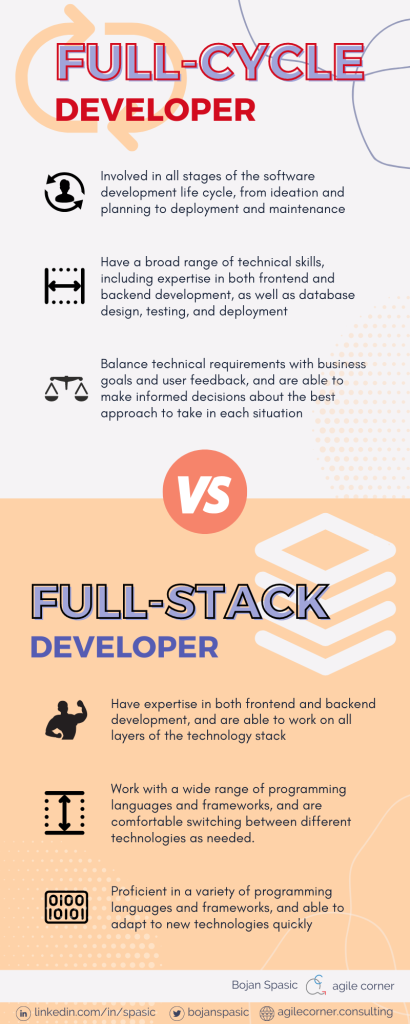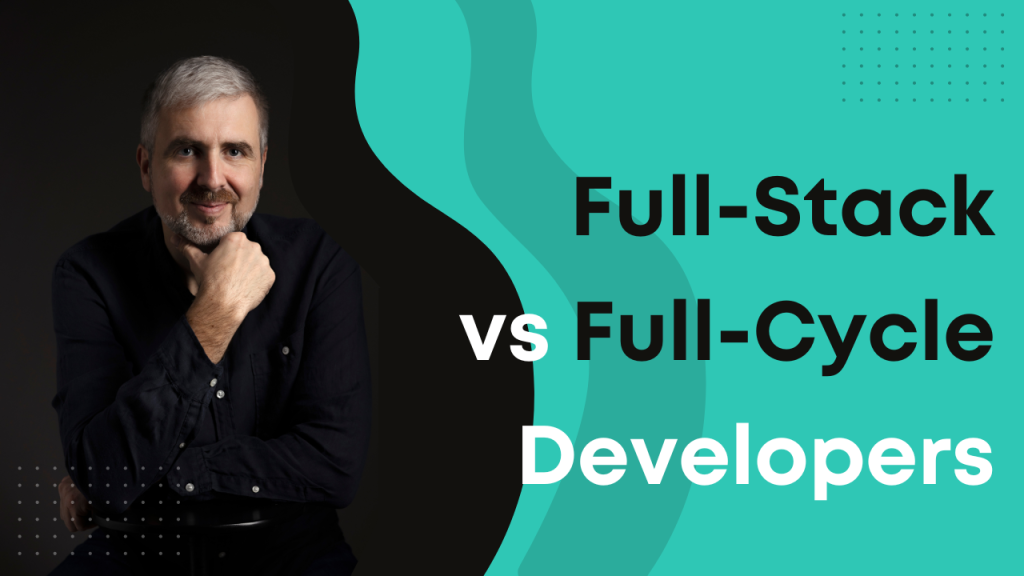
Let’s also discuss how to choose the right developer for your specific needs, and offer some tips for staying up-to-date with the latest trends and terminology in the ever-evolving world of software development. So whether you’re a developer, a manager, or just someone interested in technology, read on to learn more about these important concepts.
The Role of Full Cycle Developers
The software development life cycle is a complex process that involves many different stages. From ideation and planning to coding, testing, and deployment, there are countless details to keep track of. That’s where full-cycle developers come in.
A full-cycle developer is someone who is responsible for overseeing the entire development process, from start to finish. They are involved in every stage of the project, from initial planning and requirements gathering to design, development, and testing. They also take care of maintaining and supporting the application after it has been deployed.
One of the key advantages of having a full-cycle developer on your team is that they can provide a comprehensive perspective on the project. They understand the big picture and are able to anticipate potential issues and make informed decisions that will ensure the success of the project. They also have a deep understanding of the business needs and can help align the project with the company’s goals.
The Role of Full Stack Developers
While full-cycle developers are responsible for overseeing the entire development life cycle, full-stack developers focus specifically on the technology stack. This means that they are proficient in both frontend and backend development, as well as other related technologies like databases, servers, and networking.
In today’s fast-paced development environment, full-stack developers are becoming increasingly important. They are able to work on all aspects of a project and can quickly pivot between different technologies and frameworks as needed. They are also able to collaborate more effectively with other developers since they understand the different components of the application and how they interact with each other.
However, being a full-stack developer requires a wide range of skills and a deep understanding of many different technologies. They need to be able to write clean, efficient code on the frontend and backend, as well as managing databases, configure servers, and ensure that the application is secure and scalable.
The software development stack can span from the hardware level to the user interface level. Depending on the context and domain, the stack boundaries can span areas such as hardware, embedded systems, bare-metal, network protocols, server-side languages, databases, APIs, web development, user experience design, front-end frameworks, and much more.
Choosing the Right Developer for Your Project
So, which type of developer is right for your team – a full cycle developer or a full stack developer? The answer depends on the specific needs of your environment.
If you are working on a large, complex project that requires a high level of coordination and oversight, a full-cycle developer may be the best choice. They can ensure the delivery of the highest value, and that all the different pieces of the puzzle come together seamlessly.
On the other hand, if you are working on a smaller project with a tight deadline, or quickly validating ideas for a startup, a full-stack developer may be a better fit. They can work quickly and efficiently to get the job done, and they have the technical skills needed to tackle any challenges that arise along the way.
Ultimately, the key to success is to choose the right developer for your specific needs. Whether you go with a full cycle developer, a full stack developer, or some other type of developer, make sure that they have the skills and experience needed to bring your project to life.
